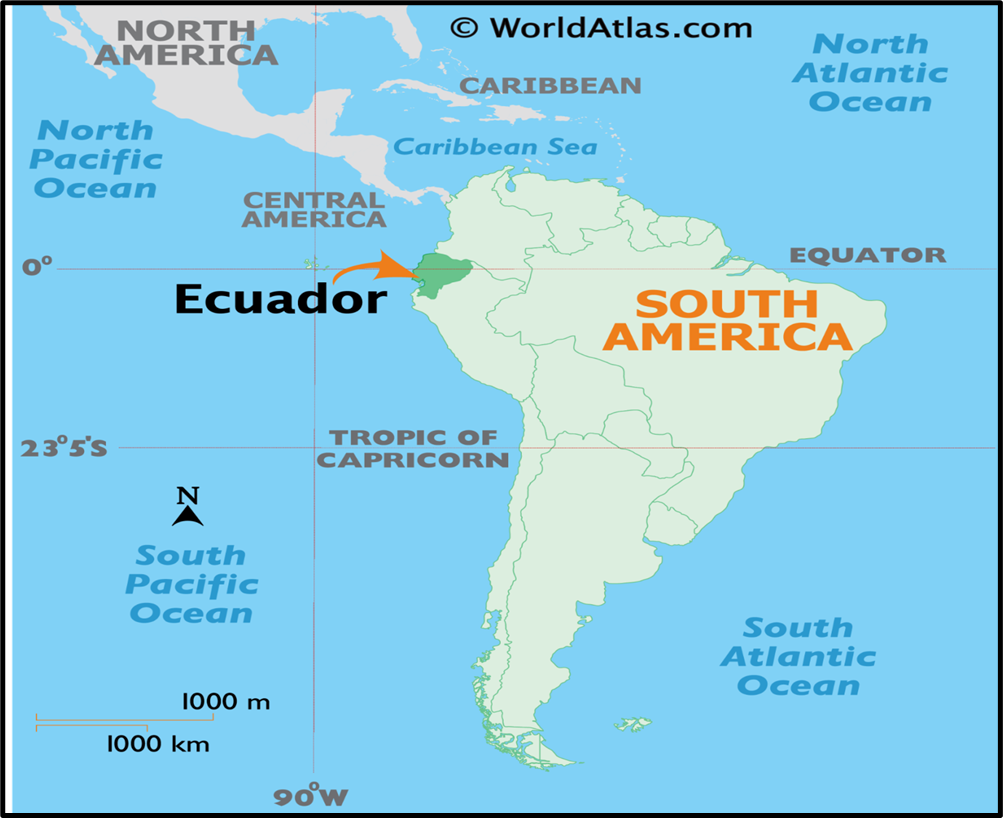BREACH OF CONVENTION
Syllabus:
GS-II:
Governance, Constitution, Polity, Social Justice and International Relations
Why in the news?
Ecuador’s breach of diplomatic norms by raiding the Mexico embassy amid rising gang violence sparks international concern.
source:wordpress
About the Breach of Convention: Ecuador’s Violation of International Laws
- Ecuador’s recent raid on the Mexico embassy in Quito on April 5th, targeting former Vice-President Jorge David Glas, violates the Vienna Convention on diplomatic relations.
- This breach raises concerns about adherence to international norms and the rule of law.
- Arrest of Former Officials: The raid aimed to arrest Jorge David Glas, a former Vice-President, and was part of President Daniel Noboa’s anti-corruption campaign.
- Tensions with Mexico: Tensions escalated after Mr. Glas sought refuge in the Mexican embassy following corruption charges.
- Ecuador declared Mexico’s Ambassador persona non grata after critical comments by Mexico’s President López Obrador.
| About Vienna Convention on Diplomatic Relations:
Adoption and Ratification
Purpose and Scope:
Receiving State:
Inviolability:
High Commission vs. Embassy:
About the important articles of the Vienna Convention on Diplomatic Relations, 1961:
|
About the Diplomatic Crisis:
- Mexico’s Response: Mexico granted asylum to Mr. Glas, leading to Ecuador’s condemnation and the subsequent embassy raid.
- Legal Action: Mexico has taken the matter to the International Court of Justice, alleging a breach of sovereignty and demanding Ecuador’s expulsion from the
- Domestic Challenges:
- Rising Gang Violence: President Noboa faces criticism for escalating gang violence, particularly in cities like Guayaquil.
- Political Fallout: The President’s approval ratings have plummeted amid concerns over his handling of security issues, exacerbated by a recent surge in murders during Easter weekend.
Understanding Ecuador-Mexico Relations:
Establishment of Diplomatic Relations (1830):
- Ecuador and Mexico established diplomatic relations in 1830.
- Both nations are members of various regional and international organisations.
Historical Context:
- Pre-Columbian cultural and economic exchanges between indigenous cultures of Ecuador and Mexico.
- Formerly part of the Spanish Empire, Ecuador and Mexico have historical ties dating back to colonial times.
- Ecuador was initially part of the Viceroyalty of Peru and later the Viceroyalty of New Granada; Mexico as part of New Spain.
Development of Relations:
- In 1837, Mexico opened its first diplomatic mission in South America in Guayaquil, Ecuador.
- Significant development in relations in the 1970s with high-level visits and agreements signed on economic, scientific, and cultural cooperation.
- Mutual visits by leaders of both nations to each other’s countries signify strengthened ties.
Recent Diplomatic Exchanges:
- Ecuadorian President Lenín Moreno attended the inauguration of Mexican President Andrés Manuel López Obrador in December 2018.
- Ecuadorian President Guillermo Lasso visited Mexico in August 2021, meeting with President López Obrador and Foreign Minister Marcelo Ebrard.
2024 Diplomatic Crisis:
- Former Ecuadorian Vice-President Jorge Glas sought asylum in the Mexican embassy in Quito in December 2023.
- Ecuador expelled the Mexican ambassador in response to allegations of fraud in Ecuador’s 2023 presidential elections made by Mexican President López Obrador.
- Ecuadorian police raided the Mexican embassy in Quito on April 5, 2024, arresting Glas, leading to Mexico severing diplomatic relations.
Bilateral Agreements:
- Both nations have signed numerous bilateral agreements covering various sectors, including commerce, culture, cooperation against drug trafficking, scientific and technical cooperation, tourism, taxation, air transportation, legal assistance in criminal matters, extradition, and mutual recognition of higher education studies.
Trade Relations:
- Two-way trade between Ecuador and Mexico amounted to US$878 million in
- Key exports from Ecuador to Mexico include cocoa beans, palm oil, copper ores, electric motor parts, and medicines.
- Mexico exports medicine, monitors, vehicles, tubes, pipes, and food products to Ecuador.
- Mexican multinational companies operate in Ecuador, contributing to bilateral economic cooperation.
Understanding Criticism and Concerns:
- Political Manoeuvring: Critics accuse President Noboa of exploiting the diplomatic crisis to bolster his political standing.
- Neglect of Domestic Issues: However, the government’s focus on diplomatic tensions overlooks urgent domestic challenges, such as gang violence.
Conclusion:
Ecuador must address its internal security issues while upholding international laws and diplomatic norms. Resorting to unilateral actions within foreign embassies undermines diplomatic integrity and fails to address the root causes of domestic unrest. The government’s response should prioritise lawful measures and cooperation with international partners to effectively tackle the country’s multifaceted challenges.
———————————————————————————————————-
———————————————————————————————————–
Mains Practice Question:
Discuss the implications of Ecuador’s breach of the Vienna Convention on Diplomatic Relations in its raid on the Mexican embassy in Quito.”Examine the circumstances surrounding Ecuador’s actions, including the arrest of former Vice-President Jorge David Glas and the political motivations behind it.Analyse the response from Mexico, including the declaration of persona non grata for Ecuador’s ambassador and the appeal to the International Court of Justice.




